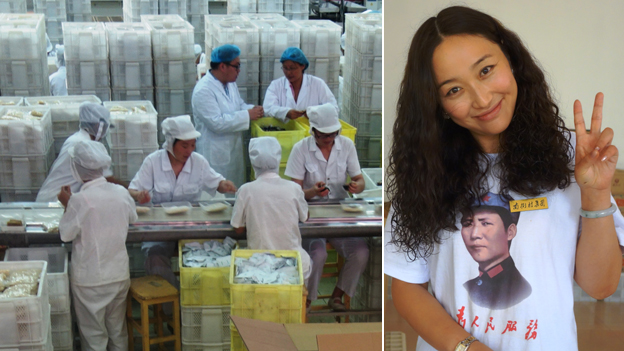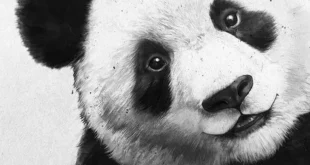BBC
November 25, 2013

Dawn is often murky in central China – grey skies, thin smog everywhere.
But rain or shine, in Nanjiecun village, at 06:15 every morning, the air is suddenly full of songs of praise for China’s mighty former leader, Mao Zedong. The anthems blare forth up and down the empty streets, from loudspeakers on every lamp post.
Nanjiecun is a place where time seems to have stood still, or even gone backwards. It is one of China’s very few remaining Maoist communes, a showcase for a vanished regime.
On and on chants the song that many Chinese recognise from their childhood, or their parents’ childhoods: “The East turns red, the sun is rising, China has Mao Zedong, he’s seeking people’s happiness, he’s seeking the way forward…” The choruses are sunny, driving, uplifting.
Sixty years ago, they would have been everywhere, in every town and village. Now they are just here, in Henan province in the middle of China.
They are pleased to welcome visitors. The village’s propaganda chief shows me round.
The archive hall tells the story. After Mao Zedong’s successors handed state-owned land back to the farmers in the 1980s, the people here were persuaded to give the land back to the village. It is run as a commune – everyone shares in the enterprise.
The historic displays show photographs of decrepit cottages. There is a drawing of the way the land used to be tilled – two men pulling a plough instead of oxen, guided by a third. A hard life, not quite within living memory.
When the village returned to Maoist communal principles in the 1980s, it appears to have flourished, perhaps rather more than it did in the 1960s when Mao’s rigorous rule was the way the whole country was run, and millions perished in strife and famine.
Nanjiecun’s rural slums were replaced with apartment blocks – a traditional Chinese arch was erected at the entrance to the village.
There is a big square with a big statue of Mao, and posters of other communist heroes – Karl Marx, Lenin, Stalin. Lots of red banners everywhere.
New factories on old farmland attracted outside investment, making noodles, beer, medicines.
There is a newspaper and a radio station which wakes the village up every morning with those Chairman Mao songs. The village television station has tapes of many more celebratory performances.
The noodle factory was set up 15 years ago with Japanese investment. It was swarming with hygienically clad workers when I was there.
The noodles fresh off the production line tasted good too, at the end of the run, served up to us by an engaging young woman who had joined the village community when she married a local boy.

 Daily Stormer The Most Censored Publication in History
Daily Stormer The Most Censored Publication in History


